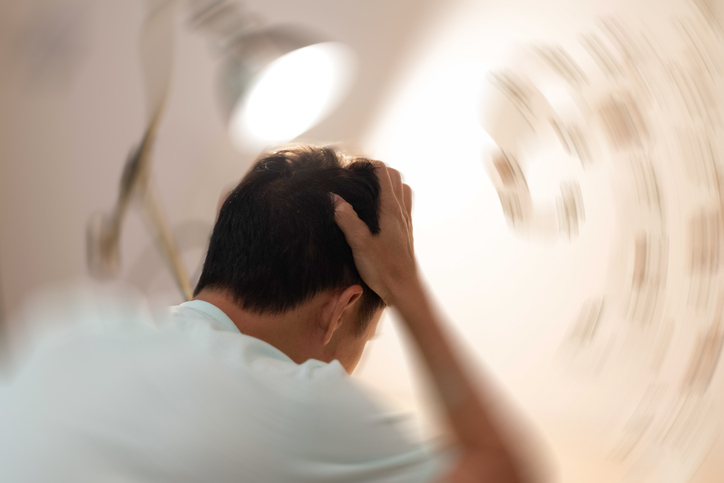Experiencing sleep issues following a traumatic brain injury is a very common experience. TBI-related sleep issues may become a chronic condition and result in extreme drowsiness during the daytime, insomnia, and heightened anxiety.
A TBI-caused sleeping disorder can greatly disrupt and diminish your quality of life in a number of ways. For example, victims of TBI-caused sleep disorders may be unable to continue their jobs, attend morning or evening events, and will have a much more difficult time navigating their daily schedule.
Are you suffering from a sleep disorder brought on by a brain injury? Continue reading to learn more about your condition, or contact Brain Injury Law of Seattle today to speak with a legal professional about how to secure compensation for your injuries and suffering.
WHAT IS A TRAUMATIC BRAIN INJURY?
A traumatic brain injury occurs when an object pierces the brain tissue or a blow is received to the head that causes brain tissue tearing.
Common culprits of traumatic brain injuries include:
- A violent blow to the head
- Whiplash due to a car collision
- A fragment of the skull or other foreign object tearing the brain tissue
- Striking the head against a surface (as in the case of slip and fall accidents)
Regardless of whether you’ve sustained a mild or severe TBI, damage has been done to your brain and you must seek out medical and legal attention immediately.
Complications such as chronic headaches, cognitive impairment, physical disability, and death can result from traumatic brain injuries so it is imperative to receive medical help as soon as possible.
ARE SLEEP PROBLEMS COMMON AFTER A TBI?
Can a TBI cause sleep apnea? What about other sleep disorders such as insomnia?
According to the US National Library of Medicine National Institutes of Health, TBIs and sleep disorders do appear to be linked. Between 30% and 70% of traumatic brain injury victims experience some level of sleep disturbances that they did not have prior to their injury.
These sleep disturbances include:
- Insomnia due to brain damage
- Excessive fatigue or drowsiness
- Narcolepsy (spontaneously falling asleep during the day)
- Sleep apnea (airway blockage during sleep resulting in snoring)
- Parasomnia (night terrors, sleepwalking, extreme confusion when drowsy, etc.)
HOW DO TBIS CAUSE SLEEPING DISORDERS?
Your brain is responsible for signaling your body to do different things and consequently, if an injury to the brain has been sustained, your sleep cycle may be thrown out of whack.
Your brain may undergo a chemical change due to a TBI which could result in a decrease or increase in certain chemicals that cause your body to go to sleep. Additionally, you may experience sleep alterations due to changes in your ability to breathe while sleeping (e.g. sleep apnea).
Another way that a TBI can affect your sleeping patterns is by necessitating certain medications. Some victims of traumatic brain injuries require medications that alter their ability to sleep or cause various sleeping issues.
HOW TO TREAT SLEEP DISORDERS CAUSED BY A TBI
Things that may reduce symptoms of your sleeping disorder include:
- Working with a sleep therapist or other medical professional
- Avoiding caffeine, alcohol, and nicotine
- Having a consistent bedtime and rising time every day
- Limiting screen time before bed
- Darkening your bedroom
HOW LONG DO TBI-CAUSED SLEEP PROBLEMS LAST?
The duration of a TBI-caused sleeping disorder varies depending on the severity of the traumatic brain injury.
In many mild traumatic brain injury cases, sleep disturbances will be the most severe during the first two weeks after the accident. After that time, they may begin to slowly improve over the next couple of months (usually one to three).
In the event that a severe TBI has been sustained, the road to recovery is much longer and more complex. Due to the level of damage that has been sustained in the brain, sleep issues may persist for many months or even become a chronic condition. It’s essential to work with a professional who specializes in TBI-related sleeping disorders if you have suffered a severe TBI.
WHAT TO DO IF YOU’RE SUFFERING FROM A TRAUMATIC BRAIN INJURY AND SLEEP DISORDERS
If you have been victimized by a traumatic brain injury that’s resulted in sleep disorders, it’s important for your bodily and mental wellbeing that you work with a specialist to begin recovering.
Not only should you be partnering with a reliable medical professional, but you should also be working with a legal professional in pursuit of compensation for your medical expenses.
Our firm’s founder, Scott Blair, has over 25 years of experience working with victims of traumatic brain injuries, so he understands the unique needs of TBI victims. To schedule a free consultation at our firm, get in touch with Brain Injury Law of Seattle today.
Better sleep is just around the corner.


